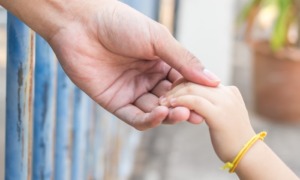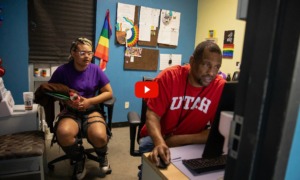 Arriving quietly Wednesday between the Supreme Court’s historic rulings on gay marriage was a ruling that will have lasting and significant impacts on Native American families.
Arriving quietly Wednesday between the Supreme Court’s historic rulings on gay marriage was a ruling that will have lasting and significant impacts on Native American families.
A sharply divided court ruled 5-4 in a South Carolina child custody case, sending a 3-year-old girl who has spent the last year a half in her biological father’s custody, back to her adoptive parents.
At the heart of Adoptive Couple v. Baby Girl, was the Indian Child Welfare Act, federal legislation enacted in 1978 to curb incidents of child removal by non-tribal agencies, and an Oklahoma man, Dusten Brown, who was awarded custody of his 3-year-old daughter after living with a South Carolina family for more than two years.
The mother of the child placed Brown’s daughter up for adoption after Brown agreed to relinquish his parental rights on the condition that he not pay child support. The child’s mother selected South Carolinians Matt and Melanie Capobianco to be her daughter’s adoptive family, and the Capobiancos even present at the child’s birth in 2009. The next day, the child’s mother officially relinquished her rights and signed consent forms authorizing the infant’s adoption.
Four months later, the Capobiancos served Brown a notice about the adoption, which he signed. A day later, however, Brown contacted a lawyer requesting that the adoption process be halted. A family court trial held in 2011 resulted in Brown gaining custody of the child, who was now 2-years-old, when the court decided that the adoptive family had not demonstrated that the child would “suffer serious emotional or physical damage” under her father’s care. Subsequently, the state Supreme Court ruled that several provisions of the Indian Child Welfare Act were applicable to the custody case, with South Carolina’s highest court affirming the earlier family court ruling.
Tuesday’s ruling, however, casts doubt on some of the provisions of the Indian Child Welfare Act. Justice Samuel Alito wrote in the majority opinion that because Brown did not support the mother of his child during her pregnancy, “no Indian family is broken up” by the case.
Alito wrote in the opinion: “The Indian Child Welfare Act (ICWA) was enacted to help preserve the cultural identity and heritage of Indian tribes, but under the State Supreme Court’s reading, the Act would put certain vulnerable children at a great disadvantage solely because an ancestor — even a remote one — was an Indian. A biological Indian father could abandon his child in utero and refuse any support for the birth mother — perhaps contributing to the mother’s decision to put the child up for adoption — and then could play his ICWA trump card at the eleventh hour to override the mother’s decision and the child’s best interests.”
Writing in dissent, Justice Sonia Sotomayor called the majority opinion “hollow literalism,” saying that although the South Carolina Supreme Court ruling was “heartbreaking at the time,” it was still a legitimate application of federal law.
“However difficult it must have been for her to leave Adoptive Couple’s home when she was just over 2-years-old, it will be equally devastating now if, at the age of 3½ she is again removed from her home and sent to live halfway across the country,” Sotomayor wrote. “But it can be said with certainty that the anguish this case has caused will only be compounded by today’s decision.”






























